Uganda
The heavy price and sacrifice of human rights
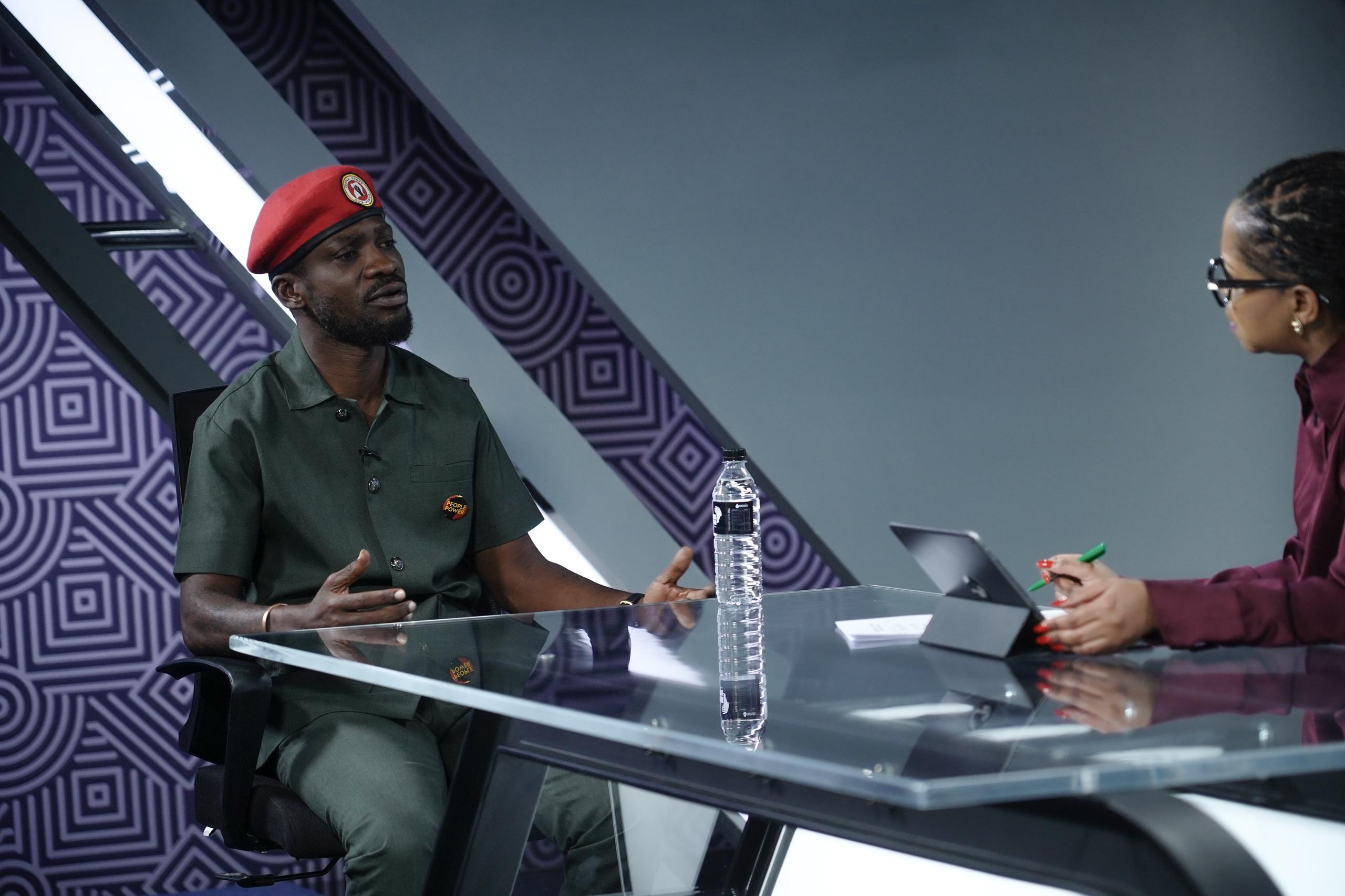
Ugandan opposition leader Robert Kyagulanyi Ssentamu is interviewed on Newzroom Afrika.
© Friedrich Naumann Foundation for Freedom / Motiv KasaggaUgandan opposition leader Robert Kyagulanyi Ssentamu, widely known by his stage name Bobi Wine, visited Johannesburg to attend the screening of his Oscar-nominated documentary film “Bobi Wine – the People’s President”. The film recounts Bobi Wine’s participation in the 2021 Uganda presidential election that resulted not only in long-term strongman Yoveri Museveni’s fraudulently clinging to power but also a brutal crackdown on the political opposition.
As part of the film screening, victims and survivors shared their accounts. Catherine Monica Nabukeera, Richard Ssebuganda, Samuel Masereke Busindi, John Bosco Ngoya and Bashir Kasagga told harrowing personal stories of abduction, torture, mutilation and death. Their trauma, which they have to relive repeatedly, should shame the world into action.
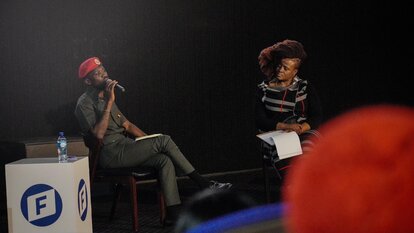
Bobi Wine speaks with FNF's Masechaba Mdaka during a Q and A session that followed the screening of the film "Bobi Wine - The People's President" in Johannesburg
© Motiv Kasagga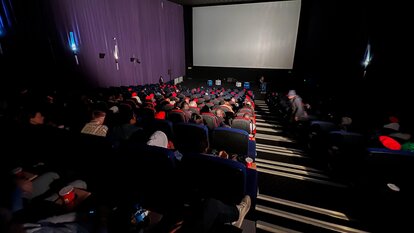
Guests settle in ahead of the screening of the film "Bobi Wine - The People's President" in Johannesburg.
© Motiv Kasagga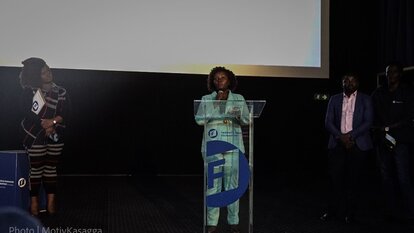
Monica Nabukeera, whose husband has been missing since 2021 in Uganda, share's her experience of how this development has affected her and her young children.
© Motiv Kasagga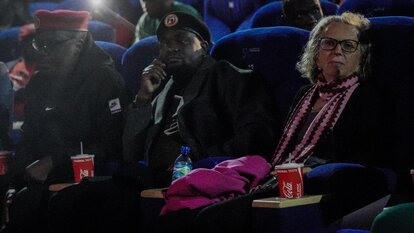
FNF Africa regional director, Ms Inge Herbert watches the screening of "Bobi Wine - The People's President" together with members of the People Power movement
© Motiv Kasagga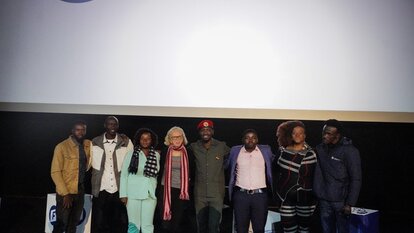
Survivors Catherine Monica Nabukeera, Richard Ssebuganda, Samuel Masereke Busindi, John Bosco Ngoya and Bashir Kasagga in a group photo with Masechaba Mdaka, Bobi Wine and Inge Herbert
© Motiv KasaggaThe international community's complicity in human rights abuses
Uganda is not free. The regime of Museveni, Uganda’s president since 1986, clings to power, trying to strangle any form of meaningful political opposition by all means necessary. Its unwillingness to admit and take accountability for atrocities committed against civilians who do not align with its centralised political approach and demonisation of opposition politics, is in itself grossly unconstitutional. Any opposition or perceived threat to the regime’s continued “reign” is met with brutal force.
Ugandans pay a heavy price – not only politically. The country, once dubbed “The Pearl of Africa”, is home to a very young population. Yet the average person can’t expect to live beyond 65, according to Statista, a German data platform. The country’s HDI performance is dismal. It ranks worse than war-torn Syria. Access to education and to health care as well as the overall standard of living – common indicators of the general progress of a country - are below par.
Yet the world watches on. Idly. Silently. It handpicks its struggles, some of which apparently are bigger and more important than others. The silence and lack of pronounced reaction from those countries that would have the influence and means to curtail the onslaught of human suffering is deafening. They choose business as usual above the right to life. That’s diplomacy over democracy for you. The Ugandan regime, meanwhile, enjoys being at the receiving end of multilateral support from the USA, the UK, Europe, the United Arab Emirates, Russia and China while disparaging Ugandan human rights defenders as influenced by “foreign interests”.
The role of the diaspora and global support
The issue of human rights violations in Uganda cannot be overstated enough. As FNF, it is our duty to work through and with human rights defenders to support the fight towards a just and equitable society where people live in freedom, protected by their constitution. The right to life and freedom must not be a subjective one. Multiparty, open democracies that protect human rights and the freedom of their societies must not compromise on these principles but demand that they are universally adhered to, no matter where.
This brings to the fore the importance of continuous advocacy and exposure of what is happening in Uganda through multiplier voices and actions. The Ugandan diaspora plays an important role in amplifying this advocacy. In many respects, the current diaspora is one of circumstance rather than choice. Ugandans living in the diaspora live at the mercy of what they can get as socio economic migrants and political asylum seekers. They often face more challenges living in foreign countries which again impinges upon their freedoms and identity. Yet, admirably, despite their hardships, their voices for a free Uganda remain loud and clear. The world needs to listen.
